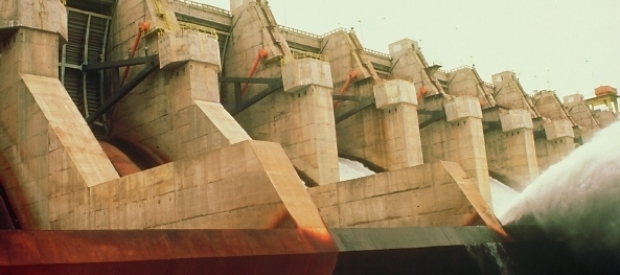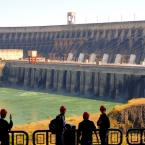Brazilian Dams
Xingu Encounter 2008 - May 19-23 | |
Brazil is one of the world’s leading dam–building nations, and is already highly dependent on hydropower for its electricity, with about 80% of its electrical energy coming from large dams. Despite recent initiatives to diversify the country’s sources of electrical energy generation, energy planners and industries are pressing for a major expansion of hydroelectricity in Brazil, saying it is crucial for the nation’s economic growth. While dam opponents advocate for more appropriate and less destructive ways to get electricity, Maurício Tolmasquim, head of the national energy planning agency EPE, has said that opponents of dams "would have Brazil return to the stone age."
Construction of dams in Brazil has caused enormous social and environmental impacts. The Brazilian Dam–Affected Peoples Movement (MAB) estimates that one million Brazilians have been impacted by dam construction, and that 70% of these people have not received compensation for their losses. MAB, which was originally formed by people affected by Itaipu dam in the 1970s, has today grown into a national movement, and is one of the strongest organizations of dam–affected people in the world.
Recent controversies have shown the inadequacy of current standards for planning and licensing new dams. Studies for Barra Grande Dam, on the Pelotas River in the Uruguay River basin were shown to be fraudulent in failing to mention that several thousand hectares of primary forests would be flooded. The Environmental Impact Assessment for Estreito Dam, on the Tocantins River, stated that endangered river dolphins would be "helped" by the dam’s restricting their habitat, making them easier to manage. Studies for dams have also, in nearly every case, seriously underestimated the numbers of people eligible for compensation or resettlement. The Brazilian government has ignored the recommendations of the World Commission on Dams, saying that following the WCD guidelines would make it difficult to build new projects.
International Rivers is working with other civil society organizations to raise the level of debate about Brazil´s energy future, and to show that Brazil can move forward without destroying its river systems.
- Nonexistent node nid: 1048.
- Visit our interactive Dams in Amazonia database to see planned dams for the Amazon Basin








